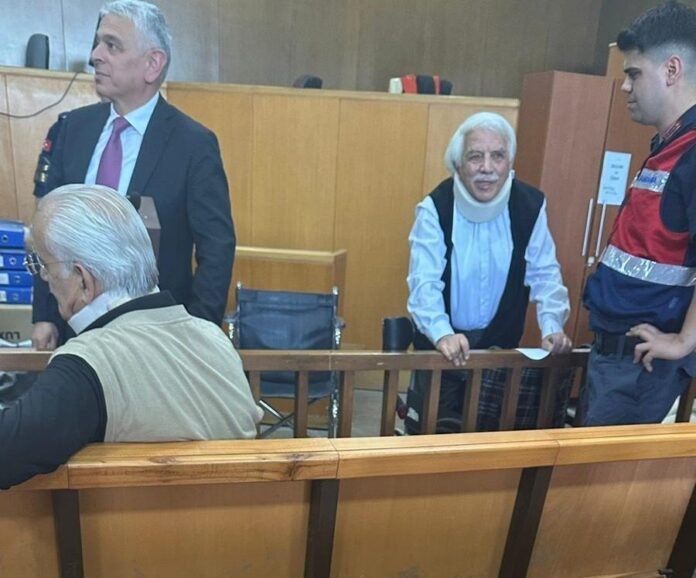Alaeddin Kaya, a 75-year-old former media owner jailed over alleged links to the faith-based Gülen movement, faces a risk of stroke and should be taken by ambulance to a hospital whenever he requires medical care, a prison memo shared by journalist Sevinç Özarslan on X reveals.
A note on the memo by the neurosurgeon who examined Kaya shows that he was transferred to a hospital by prison bus on August 22 despite the fact that he should always be transported by ambulance because of stroke risk. Kaya suffers from a number of serious ailments and requires two brain surgeries.
Kaya, who was the owner of the now-defunct Zaman newspaper, was sentenced to aggravated life imprisonment in 2018 on charges of “attempting to overthrow the constitutional order.” His conviction was overturned twice by the Supreme Court of Appeals in 2018 and in 2025. Each time, however, the Ankara 4th High Criminal Court reinstated the verdict. Denied an ambulance, Kaya could not attend the last two hearings and was resentenced to life in prison again on July 11. The case is now before the Supreme Court of Appeals for a third time.
Legal experts call the case without precedent in Turkey’s judicial history.
The Zaman daily, which was Turkey’s best-selling newspaper, was closed down by the Turkish government following a coup attempt on July 15, 2016 due to its alleged links to the faith-based Gülen movement.
Turkish President Recep Tayyip Erdoğan has been targeting followers of the Gülen movement, inspired by the late Muslim cleric Fethullah Gülen, since corruption investigations in December 2013 implicated him as well as some members of his family and inner circle.
Dismissing the investigations as a Gülenist coup and a conspiracy against his government, Erdoğan began to target the movement’s members. He designated the movement as a terrorist organization in May 2016 and intensified the crackdown on it following an abortive putsch in July of the same year that he accused Gülen of masterminding. The movement strongly denies involvement in the coup attempt or any terrorist activity.
Independent reports estimates that the government has closed more than 200 media companies since the coup attempt.
Kaya’s case has also renewed concern over the condition of critically ill prisoners in Turkey. According to Law No. 5275, the sentence of a prisoner who, due to a serious illness or disability, is unable to manage life on their own under prison conditions and who is not considered a serious or concrete danger to society, may be suspended until they recover. However, the stipulated suspension of sentence is often not implemented.
The Human Rights Association (İHD) says more than 1,400 sick prisoners are currently held in Turkey, including hundreds in critical condition. Complaints include delays in transferring inmates to hospitals, inadequate treatment in prison clinics and forensic reports that allow seriously ill detainees to remain incarcerated.
Turkey recorded 709 deaths in prison in the first 11 months of 2024, according to data from the Ministry of Justice shared in response to a parliamentary inquiry.















